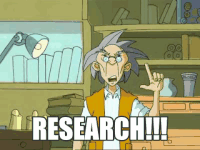
News 📽️ Highlights:
MD Anderson Cancer 🧑⚕️ Center warns that while some studies 📖 show promise, the evidence supporting CBD as an effective cancer treatment is mixed, and it should not replace conventional therapies. MD Anderson Cancer Center
Memorial Sloan Kettering Cancer 🩺 Center highlights that although cannabis oil 💧 is often touted as a cancer cure, there is no scientific evidence supporting this claim, and such treatments should not replace standard care. Memorial Sloan Kettering Cancer Center
Worldwide 👩⚕️ Cancer Research points out that while cannabinoids like CBD 🌻 show potential in cancer cell studies, human trials are still limited, and more research 📊 is necessary before definitive claims can be made. Cancer Cures Worldwide

Quick 📝 Read:
Potential Anti-Cancer 🏥 Effects: CBD may have the potential to inhibit cancer cell growth and promote apoptosis in in vitro and animal studies, though human 😷 trials are still needed.
Managing Cancer Symptoms: Research shows promise for CBD 🥀 in managing cancer-related pain, nausea 🤢, and loss of appetite, especially for those undergoing chemotherapy.
Complementary, Not a Cure: While CBD 🥬 may complement conventional cancer treatments like chemotherapy 🏨 and radiation, it is not a standalone cure.
Ongoing Clinical 🏪 Trials: Ongoing clinical trials are investigating CBD’s 🎋 role in enhancing conventional treatments and improving patients' quality of life.
Consult a Healthcare 🔬 Professional: Before incorporating CBD into a cancer treatment plan, consult a healthcare professional to understand its possible interactions with other medications. 🩻

CBD 🥒 and Cancer Treatment: Is There Real Evidence Behind the Claims?
The use of CBD 🌳 in cancer ⚕️ treatment has become a polarizing topic 🌪️, gaining traction as both a hopeful solution and a misunderstood remedy. But is there solid scientific 📑 backing for these claims, or are they built on the sands of speculation? 🏖️ Let’s dive into what we know so far.
There's a big difference between what you observe in a cell line in a petri dish compared to what will happen if you treat a human who has that cancer."
The Biological 🗂️ Impact of CBD on Cancer Cells
CBD, or cannabidiol, interacts with the endocannabinoid system 🧠, a network responsible for maintaining 🧮 homeostasis in the body. Research suggests that CBD can inhibit cancer cell growth and induce apoptosis (programmed cell death) ⚰️. However, these findings come primarily from in vitro and animal studies 🐭. While these results are promising, it is essential to note that they do not always translate directly to humans.
One of the key areas of focus is how CBD impacts specific types of cancer, such as breast, lung, and prostate cancer 🎯. In studies on breast cancer, for instance, CBD has shown potential in reducing tumor size and slowing metastasis, the spread of cancer to other areas of the body 🦠. But before we get too carried away, these results are still preliminary and need larger-scale clinical 📒 trials to be validated.

Pain and Symptom Management in Cancer
One area where CBD shows considerable promise is in alleviating cancer symptoms. Many cancer patients report debilitating pain 🔥, nausea, and loss of appetite 🍽️, particularly as a result of chemotherapy. CBD has been studied for its potential in reducing neuropathic pain and mitigating nausea 🤢. In fact, several clinical studies have shown that CBD could be an alternative to opioid-based treatments 💊, which are often addictive and come with severe side effects. This could revolutionize how patients manage their pain, though the degree of effectiveness may vary from person to person.
Moreover, CBD’s anti-inflammatory properties 🧯 may help with the chronic inflammation that cancer can cause, making it a multi-faceted option for symptom relief.
Can CBD Replace Conventional Cancer Treatments?
Despite the growing excitement 🎆 around CBD, it is not a cure for cancer ⚠️. Conventional treatments like chemotherapy, radiation, and immunotherapy remain the cornerstones of cancer care. There is no significant clinical evidence 🖇️ to support the idea that CBD can replace these therapies. Instead, it may complement existing treatments, potentially enhancing their effectiveness or reducing their adverse effects 🌿.
Patients should be wary of claims that promise miraculous outcomes or complete remission through CBD 🦚 alone. Scientific consensus emphasizes the importance of integrating CBD within a broader treatment plan 🎗️, under the guidance of a healthcare professional .

Ongoing 📘 Research: What the Future Holds
Exciting new clinical 📙 trials are underway, investigating how CBD may work alongside conventional cancer therapies. These studies aim to assess not only the safety but also the efficacy of CBD in improving quality of life for cancer patients. For now, the evidence is cautiously optimistic 🍀 but far from definitive.
The stigma surrounding cannabis use in medicine is beginning to fade 🌀, paving the way for more robust scientific inquiry. Researchers 📓 are particularly interested in how full-spectrum CBD, which includes multiple cannabinoids and terpenes, might offer a more effective treatment than isolated CBD 🧪.
Should You Consider CBD in Your Cancer Treatment Plan?
If you or a loved one are considering incorporating CBD 🐸 into your cancer treatment plan, consult your oncologist. CBD can interact with other medications 💉, so it’s crucial to approach it with caution 🚧. Understanding the potential benefits and risks is key to making an informed decision.
At the end of the day, CBD is showing potential as part of cancer care, particularly in managing pain and improving quality of life 🌿. However, the need for further research remains ☢️ critical.

Do you think CBD will become a mainstream treatment option for cancer, or is it too soon to tell?
🌞 Detach and Surrender ⛵

The information provided in this newsletter is for informational purposes only and does not constitute medical, legal, or professional advice. Always consult with a qualified professional before making any decisions based on the content shared here.
